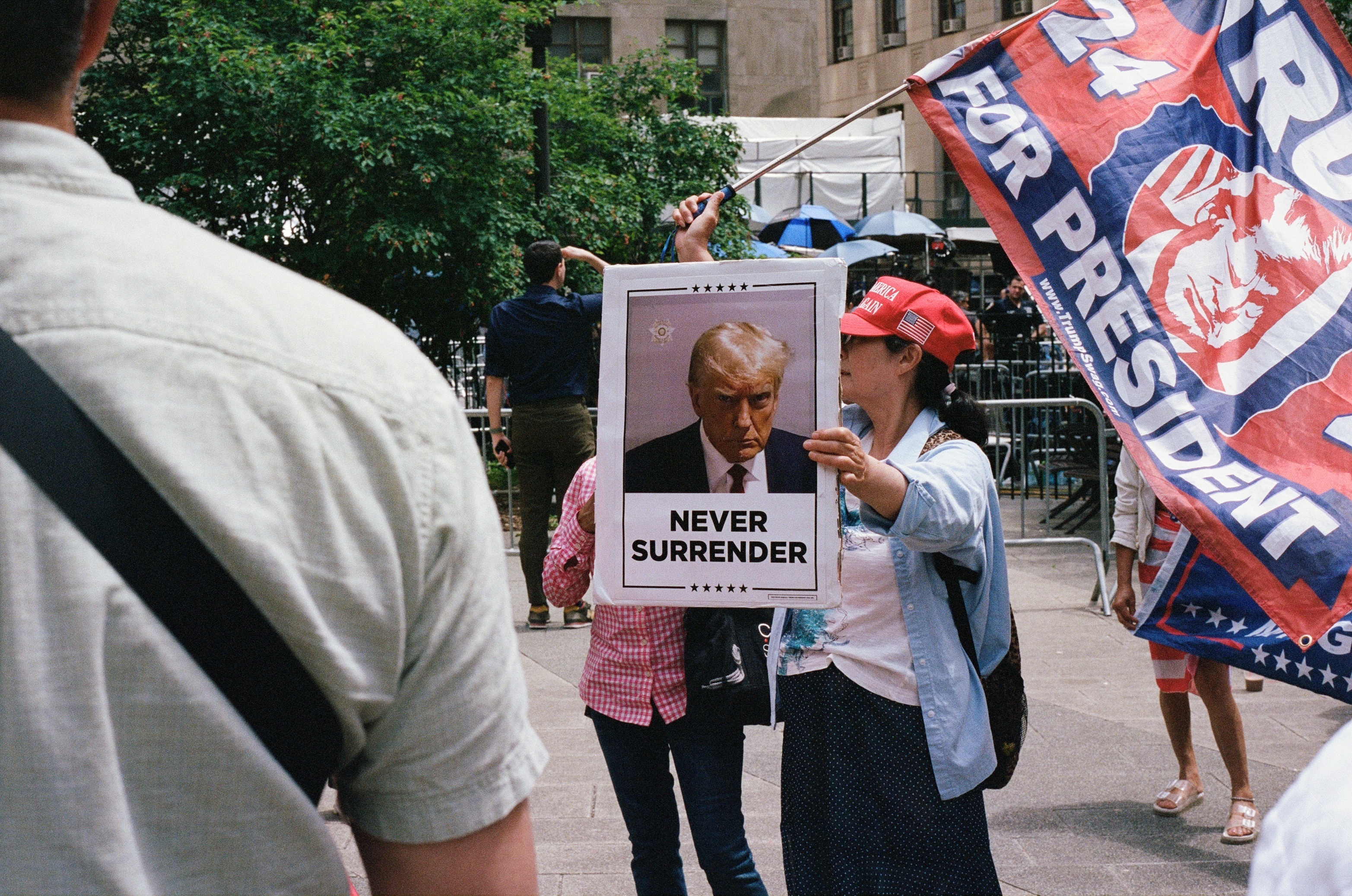Public Opinion on National Security: The "Steady Leadership" Edition
National security was a key tenet of Hillary Clinton’s acceptance speech at the Democratic National Convention on Thursday evening.
Published by The Lawfare Institute
in Cooperation With

National security was a key tenet of Hillary Clinton’s acceptance speech at the Democratic National Convention on Thursday evening. Calling for “steady leadership” and a commitment to allies, Clinton sought to differentiate herself from Republican rival Donald Trump, who most recently stunned the foreign policy establishment by casting doubt on U.S. support for NATO. She touted “judgement, cool resolve, and the precise and strategic application of power,” situating her foreign policy experience as a key qualification to serve as Commander-in-Chief.
Clinton’s remarks come at a time when national security issues are of paramount importance to the public. According to an Economist/YouGov survey released July 25, 92 percent of registered voters report that national security is an important factor in determining the candidate they’ll support for President. Fighting terrorism is an equally significant consideration, with 91 percent saying this will be an important factor in deciding which candidate to support.
Terrorism and national security poll just behind job creation (95 percent) and on par with healthcare (92 percent) as important voter decision factors this election, but an NBC/Survey Monkey poll indicates that concerns about terrorism have increased substantially in recent months. As of July 24, 26 percent of Americans identify terrorism as the issue that matters most right now, a figure that has more than doubled since the June 12 massacre in Orlando, immediately before which terrorism polled at 12 percent.

Although a strong majority of Americans are concerned about national security, they are deeply divided as to which candidate would best serve as Commander-in-Chief. Asked about each candidate’s ability to deal wisely with terrorism, Americans’ “confidence” in Hillary Clinton polls just one point ahead of their confidence in Donald Trump (35 percent confidence to 34 percent confidence, respectively). A greater share of Americans report they are “uneasy” about the presidential candidates’ abilities to deal with terrorism: Clinton’s uneasy rating outpaces her confidence rating by 17 points; for Trump, it’s 23 points.
The share of Americans who say that Hillary Clinton is ready to serve as Commander-in-Chief polls 11 points ahead of the share of Americans who say Donald Trump is ready to assume this role (43 to 32 respectively). And yet, a greater share of Americans say the candidates are not ready to serve as Commander-in-Chief, with 46 percent reporting that Clinton is not ready and 59 percent saying the same of Donald Trump. 11 percent say they are not sure about Hillary Clinton’s readiness, and 10 percent say the same about Donald Trump. If national security remains a paramount issue to voters, it will be a key objective of each campaign to persuade undecided voters that their candidate is better prepared to become Commander-in-Chief.
Finally, the Economist/YouGov poll reveals a public divided on the United States’ role in managing world order. Asked whether the United States has a responsibility to provide military assistance to trouble spots around the world when asked by its allies, 49 percent of Americans say the U.S. has some responsibility. 29 percent report that the U.S. does not have such a responsibility, while nearly one fifth (22 percent) say they are not sure. Asked about the NATO alliance specifically, 44 percent of Americans have a favorable opinion, 26 percent have an unfavorable opinion, and 31 percent say they don’t know. This leaves a great deal of room for the American public to be persuaded.




